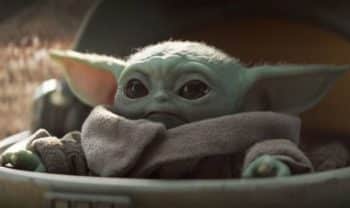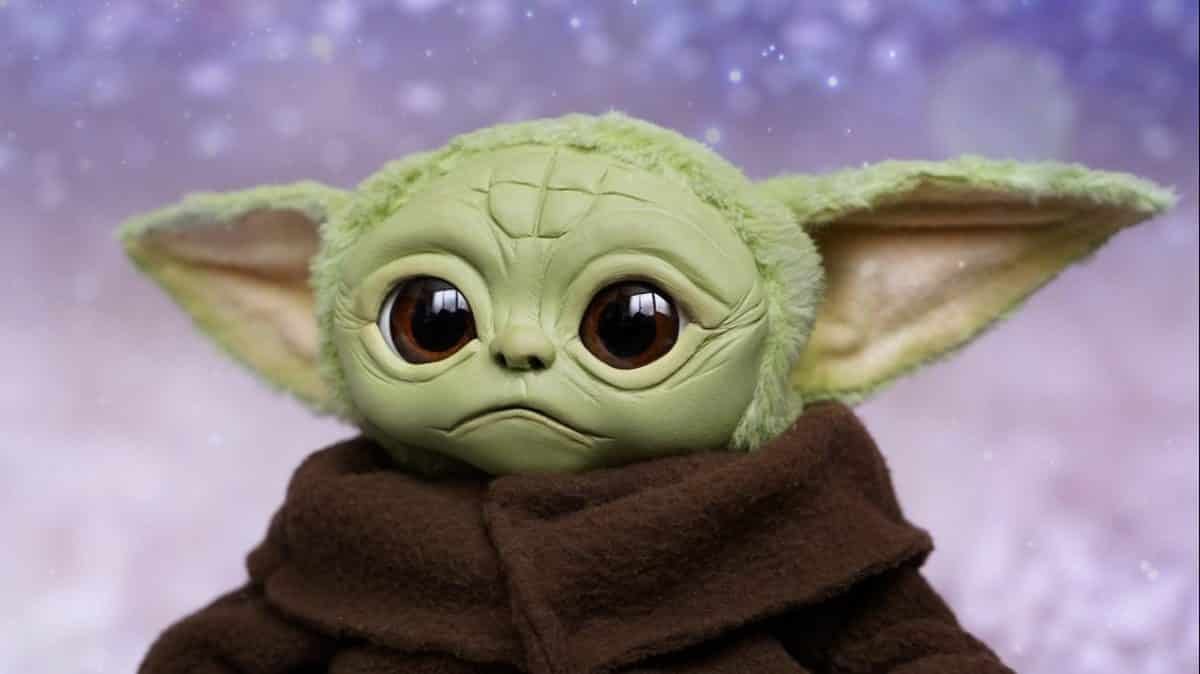The Battle Over “Baby Yoda”
Well, I'm not dumb, but I can't understand...

When Disney+ opened its doors in November, it came with a new Star Wars series, The Mandalorian. Though there was a lot of hype and excitement for the series before its release, it came with a surprise that launched it into the stratosphere in terms of popularity online – “Baby Yoda.”
Though “Baby Yoda” is not actually a Yoda, instead he’s a baby of the same species, the tiny character nonetheless tugged at the heartstrings and the wallets of the internet, whether or not they were Star Wars fans.
But the popularity of the character became something of a problem for Disney. In a bid to protect its secrecy, Disney had not prepared any merchandise for Baby Yoda. Though they were quick to pump out apparel, other items such as dolls, action figures and other products were going to take some time.
So much time that Hasbro recently announced that they are preparing to sell Baby Yoda toys and figurines – in May 2020.
But, with the holiday season upon us, demand for these Baby Yoda toys runs high. What Disney has not been able to provide, the internet has been. Whether it’s crochet patterns, counterfeit toys, t-shirts, stickers, keychains, Christmas ornaments or anything else your heart desires, you can find it.
But that doesn’t mean Disney is sitting idly by. The company has been working hard to remove infringing products. However, with Baby Yoda, it may have a fight that even the house of mouse can’t win.
I Met Him in a Swamp Down in Degoabah

Almost immediately after the release of The Mandalorian there was a push capitalize on it. Among the first were crafters, who quickly released knitting and crochet patterns to let others make their own versions.
Some of those original patterns were removed, in particular, the ones offered for sale, though it’s unclear whether it was Disney, their creators or their host that removed it.
However, those were just the first drops of a tidal wave that came crashing down on the internet. Etsy, for example, is swarming with unauthorized Baby Yoda merchandise of all types and eBay is much the same way.
This has become the subject of a lot of media coverage as well, such as this article on The Nerdist highlight a Baby Yoda plush toy.
This glut of unauthorized toys isn’t due to a lack of effort on Disney’s part. Several artists have reported receiving takedown notices after selling Baby Yoda merchandise on such sites and even the toy referenced above was also removed. Still, it’s clear that the Baby Yoda craze has outpaced even Disney’s capacity for control.
And the issues aren’t just related to physical items. Back in November, the popular gif website Giphy pulled all of its Baby Yoda gifs. Though Disney was initially blamed for this, it turned out it was a proactive move by Giphy that aimed to head off potential legal action by Disney. Disney hadn’t done anything.
Still, this showcases the legal might of Disney that, even without filing a single a notice, a site removed some of its most popular gifs in fear of legal action. Disney’s reputation is that of an aggressive IP litigator and it is not unearned.
However, the fact that the unauthorized merchandise continues to flourish showcases the other side of the equation, just how difficult it can be to control something that reaches this level of popularity.
I Saw the Little Runt Sitting There on a Log
There’s not much doubt that the internet has forever changed the relationship between creators and their fans. It not only gave fans greater access to their favorite creators and their works but it also gave fans new ways to engage with those creations.
This has created tension between creators and their fans in a variety of areas. Fanfiction and fan creations, for example, have become the subject of legal disputes. This includes the best-known recent example, the battle over the Star Trek fan film Axanar.
But the story is a familiar one. For most of history fanfiction and fan art were not major issues for creators. Fan creations were merely passion projects by fans for other fans. No money changed hands and, though they were technically copyright infringements, there was little to gain by going to war with your most passionate fans over non-commercial works that don’t actively harm the originals.
While there were always artists such as Anne Rice that did object to fan works, most either said nothing or gave their direct blessing for such creations.
But, between crowdfunding and the rise in shops such as Etsy, we are increasingly seeing the commercialization of fan creations. Whether’s a movie funded with $1 million dollars or a commecially-sold plush Baby Yoda, fans are increasingly raking in big dollars on their creations.
However, there’s a big difference between suing to stop one film and trying to stop thousands of smaller sellers on Etsy. As the RIAA found out decades ago, suing small-time infringers in large numbers is not a viable strategy in any regard. It simply generates negative publicity and does little to stem the tide.
Instead, we should fully expect to see Disney and others place greater pressure on the stores themselves. Etsy, eBay and Amazon, are likely to face pressure to take stronger and more broad action. This will likely include litigation but also may include attempts to change the law itself.
Currently, such stores are protected under the Digital Millennium Copyright Act (DMCA), which means that they cannot be held liable for the infringements their users commit so long as they remove infringements when notified. At best, this creates a game of Whac-a-Mole for rightsholders or, in cases such as this, it’s like trying to beat back a tidal wave with a sledgehammer. It’s an impossible battle.
This will likely be the next battleground between fans and creators. Until then, expect the notices to fly freely and expect there to still be a wide assortment of unauthorized merchandise available.
Yoda, Yo-Yo-Yo-Yo-Yoda
The battle over Baby Yoda is far from over but it’s already clear who lost: Disney. However, this fight was over before it began. By not having official merch available from the start, Disney left a vacuum the fans were clearly going to fill.
While the unauthorized merch would have been there either way, at least with their own offerings Disney could have dominated the conversation and made the unofficial merch a sideline issue. Instead, the 2019 holiday season will almost exclusively be dominated by unauthorized toys, dolls and more.
Even if the reasons for holding off on merchandising were good and justify the costs, Disney conceded this battle before the show was even launched. It’s safe to assume it did so knowingly.
But this battle is just one of many being fought online right now as creators and rightsholders struggle to find a balance between protecting their commercial interests and encouraging a robust and creative fan community.
Clearly, this isn’t a fight you win by chasing every infringer, closing every site and shuttering every listing. As tempting as a heavy hand might be to use, there’s no way to stop all of these kinds of infringers and being too aggressive only burns the goodwill you sought to create.
Still, it seems unlikely that this will stop rightsholders, especially the larger ones like Disney, from seeking better tools and approaches for stopping or limiting commercial fan creations. Expect to see a lot more in this space in the coming years as rightsholders and fans both become more emboldened and find themselves at loggerheads more often.
Want to Reuse or Republish this Content?
If you want to feature this article in your site, classroom or elsewhere, just let us know! We usually grant permission within 24 hours.
